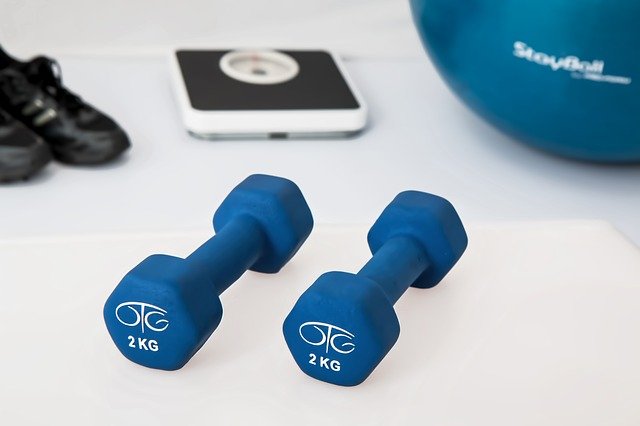5 Effective Ways To Lose Weight
Image by Steve Buissinne from Pixabay
Losing weight is often seen as a considerable challenge. The difficulties arise when trying to stick to a weight-loss strategy while also managing your day-to-day schedule. With family commitments and responsibilities, seeing continued weight loss results can sometimes be difficult.
To help your efforts, here are five scientifically-backed weight loss tips.
1. Dieting
Often most widely opted for as a core strategy, dieting can offer excellent results. But which diet? Given there are so many different weight loss diets available, it’s important to cut through the noise and identify one that will work best for you.
Zone Diet: Where you consume a ratio of 40% carbohydrate, 30% protein and 30% fat. Sticking to these proportions is important to encourage the body’s metabolism to metabolize fat. Average weight loss over a 6 month period can be as high as 7.4% as demonstrated in a study[1].
Ketogenic Diet: High protein and fat intake, but a low carbohydrate intake. The aim of this diet is to trigger Ketosis in the body, which is where the body burns fat rather than carbohydrate. One study reported a reduction in body mass of up to 11.0% in a period of 8 weeks[2].
Calorie Restriction Diet: Aim to consume 20-40% fewer calories than you normally would. This calorie deficit is important to ensure there is a net loss of calories where calorie intake is less than calorie expenditure. 10-20% weight loss is achievable over a 12-week period as demonstrated by a reliable study[3].
2. Physical Activity and Exercise
Increasing calorie expenditure in the form of exercise is a widely accepted notion and strategy to maximize weight loss results.
The most effective ways to ensure you can stick to your exercise regime are:
- Start slow and easy.
- Plan each week to add structure to your sessions.
- Set realistic goals.
- Reward targets and milestones.
- Remember why you are starting and how far you’ve come.
- Compete with yourself or someone else to make it enjoyable!
3. Prescription Medication
If you have a BMI over 30, you qualify for prescription weight loss treatments which is a safe and clinically proven way to kick start your weight loss journey.
Prescription medication can offer exceptional weight loss results. Orlistat is a popular weight-loss treatment and active ingredient found in many clinically proven weight loss medications such as Alli. Orlistat works by reducing the amount of fat absorbed in the gut by up to 30%[4]. Both Orlistat and Alli treatments available in the US are FDA approved. But prior to using consult with a doctor.
In addition, the Mayo Clinic reported that the “FDA published a safety review of orlistat in 2010 because of rare reports of serious liver injury in people using (Alli and Xenical). The FDA found no evidence to confirm that orlistat was the cause of the reported liver injuries.”
Alli and Xenical labels have since been revised because of the reports. Consult a doctor if you experience any of these side effects that may indicate liver injury:
- Itching
- Loss of appetite
- Yellow eyes or skin
- Light-colored stool
- Brown urine
You can purchase weight loss medication in the UK from Pharmica – the UK’s trusted online pharmacy.
4. Sleep
Did you know that sleep can help you achieve your weight loss goals?
Studies show that 6-8 hours of sleep is optimal while deviations outside this recommended range can result in interference with weight loss due to the disruption of hormone regulation responsible for moderating appetite[5].
5. Reduce stress levels
Increased stress is associated with weight gain. Stress is reported to stimulate the reward pathway in the brain which can, in turn, trigger an increase in the appetite for palatable foods[6]. Stress can be significantly regulated and reduced by exercise, yoga, meditation and ensuring sufficient sleep.
While the success of these strategies will vary from person to person, it’s important to try them to see what works best for you and your lifestyle.
Sources
- McAuley, et al. 2005. Comparison of high-fat and high-protein diets with a high-carbohydrate diet in insulin-resistant obese women. Diabetologia, 48(1), pp.8-16.
- Goss et al. 2017. Effects of an Egg-based, Carbohydrate-restricted Diet on Body Composition, Fat Distribution, and Metabolic Health in Older Adults with Obesity: Preliminary results from a randomized controlled trial. The FASEB Journal, 31(1_supplement), pp.lb320-lb320.
- Varady, K.A., 2011. Intermittent versus daily calorie restriction: which diet regimen is more effective for weight loss?. Obesity reviews, 12(7), pp.e593-e601.
- Fujioka, K., 2015. Safety and tolerability of medications approved for chronic weight management. Obesity, 23, p.S7.
- Lee, C. and Longo, V., 2016. Dietary restriction with and without caloric restriction for healthy aging. F1000Research, 5.
- Rabasa, C. and Dickson, S.L., 2016. Impact of stress on metabolism and energy balance. Current Opinion in Behavioral Sciences, 9, pp.71-77.

